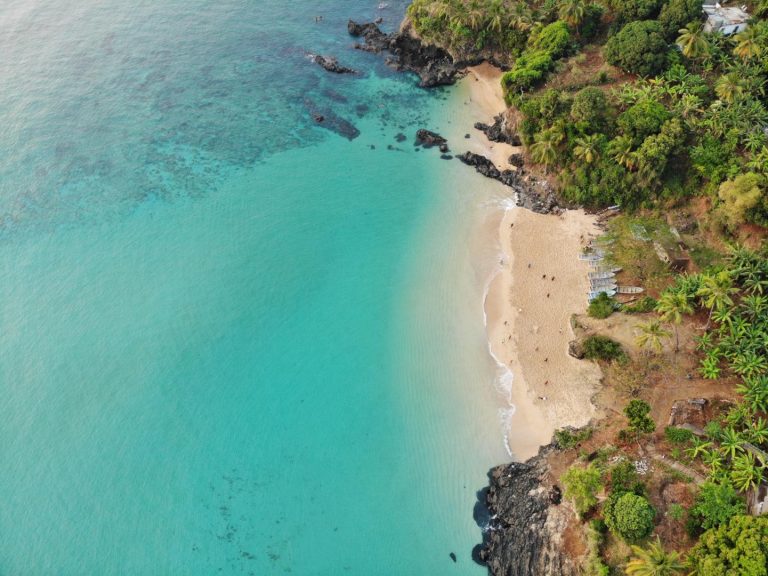 The men were meeting in the modest headquarters of Velondriake, the largest community-managed marine protected area in the western Indian Ocean. Velondriake senior fisherman, Nahoda Noel, stood and gave a wise, dignified welcome befitting of a village elder. Glasses filled with warm beer were raised in toast and soon questions on fishing techniques were being thrown back and forth, with facilitators translating between Rodriguan Creole, French, English, Malagasy, and the local Vezo dialect. Vezo is the name of the semi-nomadic ethnic group that inhabits this coastline, and literally means ‘to struggle with the sea’.
The men were meeting in the modest headquarters of Velondriake, the largest community-managed marine protected area in the western Indian Ocean. Velondriake senior fisherman, Nahoda Noel, stood and gave a wise, dignified welcome befitting of a village elder. Glasses filled with warm beer were raised in toast and soon questions on fishing techniques were being thrown back and forth, with facilitators translating between Rodriguan Creole, French, English, Malagasy, and the local Vezo dialect. Vezo is the name of the semi-nomadic ethnic group that inhabits this coastline, and literally means ‘to struggle with the sea’.
And so began a four-day training workshop held by marine conservation NGOs, Blue Ventures and Shoals Rodrigues, and the Velondriake committee for four fishermen who had travelled to Andavadoaka from Rodrigues, a small island 650 km east of Mauritius. The objective of the workshop was to teach and inspire the Rodrigan fishermen through an exchange of experiences and ideas with the Velondriake committee.
The Velondriake members discussed how 23 villages had come together to form the protected area, explaining how local communities work together to manage the region’s marine natural resources. In doing so they described the challenges they face; in particular in managing local octopus fisheries, the backbone of the region’s economy. They recounted the history of the first trial marine reserves piloted in 2004 that paved the way for Velondriake’s ambitious present day management regime – a network of managed areas and fisheries no take zones spanning over 800 square kilometres of coast and ocean.
Andavadoaka’s fishermen then moved onto the details of creating and running a protected area, relating how the community itself had established and enforced the traditional local law, or Dina, used to govern use of marine resources in Velondriake. Consideration was given to how communities had selected temporary and permanent marine reserves, and how they were monitoring their natural resources themselves to track changes in ecosystem health over time.

Fisheries scientist, Daniel Raberinary, provided an introduction to some of the technical aspects of creating marine reserves, in particular discussing the importance taking into account the biology and life history patterns of target fisheries species. In this way the workshop explored how science can assist in the selection and zoning of reserve sites. Marine aquaculture specialist, Georgi Robinson, explained to the visitors how seaweed and sea cucumber aquaculture are being used to develop lucrative alternative livelihoods to fishing in Velondriake.
Community leaders and elders then led the visitors on field visits to the outlying villages of Lamboara and Tampolove, where they were able to witness at first hand a series of newly created marine reserves, including shallow octopus no take zones, deep water coral reef reserves and a protected turtle nesting beach. In each case the Rodrigans were able to learn at first hand from grassroots conservation pioneers.
These opportunities for local dialogue were followed by a practical exercise designed to support the Rodrigans in defining the concrete steps needed to achieve their goals for conservation on their return home. This was a powerful and compelling conclusion to the visit, with the visitors presenting a clear vision of their plans for marine resource management in Rodrigues. Their experience in Madagascar had nurtured and crystallised their desire to achieve something similar to Velondriake two thousand kilometres away, and had given them some of the tools necessary to do it.
This event is sponsored by the Toyota Environmental Activities Grant Program of Toyota Motor Corporation.
Velondriake (www.livewiththesea.org)

Velondriake, which means “to live with the sea”, is the largest network of community-run coastal and marine protected zones in the Western Indian Ocean (WIO). The Vezo tribal fishing community share a common goal: to sustainably manage their natural resources. They are achieving this by protecting the region’s unique marine environment, and creating sustainable livelihoods through protected fisheries, ecotourism and conservation.
Shoals Rodrigues (www.shoalsrodrigues.net)

A marine research, training and education organisation based on the Mauritian island of Rodrigues in the Western Indian Ocean. The Shoals Rodrigues Centre has become a vibrant focal point for activities connected to the lagoon and the seas around Rodrigues. The island of Rodrigues is part of Mauritius, but it is isolated by 500 km of the Indian Ocean. With a wide encircling lagoon and a large community of fishers, the island is very much connected to the sea.
Blue Ventures (blueventures.org)

An award-winning not-for-profit dedicated to working with local communities in Madagascar to conserve threatened marine habitats and resources for the betterment of people and nature. Funded almost entirely through ecotourism revenue, Blue Ventures brings paying volunteers to project sites and trains them in scientific research, community outreach and on-the-ground conservation.








